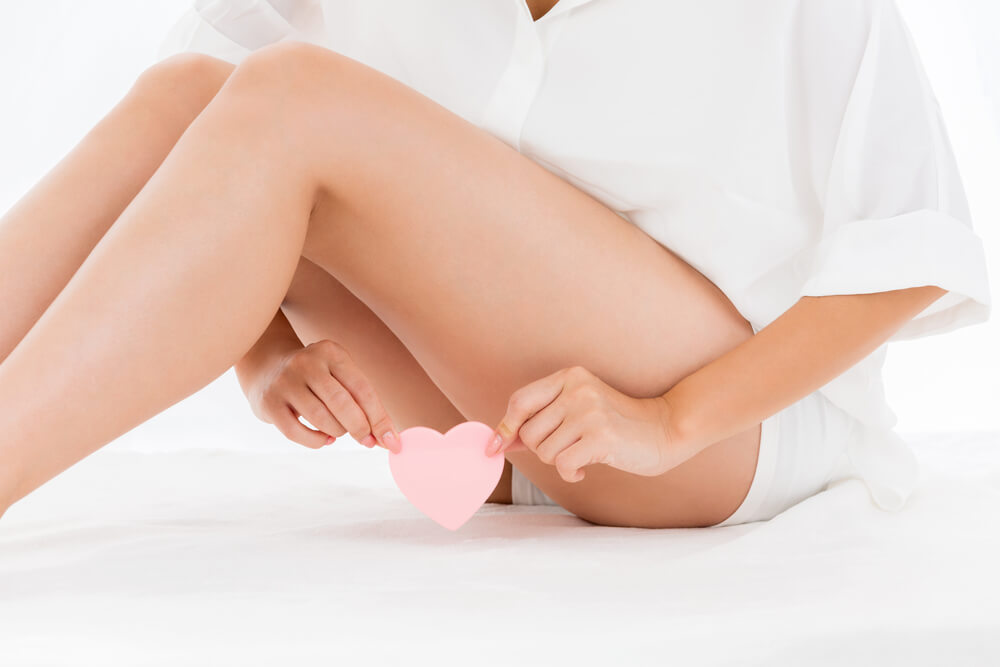The vulva, being an essential part of a woman’s anatomy, can sometimes develop lesions that cause discomfort and concern. Vulvar lesions refer to any abnormal changes or growths that occur on the external genitalia of women. These lesions can vary in appearance, symptoms, and causes, making it crucial to understand them better. In this comprehensive guide, experts at Trogolo Obstetrics and Gynecology in Jacksonville will delve into the world of vulvar lesions, exploring their symptoms, types, causes, diagnostic methods, treatment options, and preventive measures.
What Are Vulvar Lesions?
Vulvar ulcers or lesions encompass a wide range of abnormalities that affect the skin, tissues, or structures of the vulva. They can manifest as sores, bumps, lumps, discoloration, or any other noticeable changes in the genital area. These lesions can be caused by various factors, including infections, skin conditions, injuries, or even cancer. It is important to remember that not all vulvar lesions are malignant, and many can be easily treated or managed with medical intervention.

What Are the Symptoms of Vulvar Lesions?
The symptoms of vulvar lesions can vary depending on the underlying cause. Some common signs to watch out for include:
- Itching or irritation in the vulvar area
- Pain or discomfort when engaging in sex
- Stinging or burning sensation
- Redness or swelling
- Ulcers or sores
- Skin changes, such as thickening or scaling
- Abnormal discharge or bleeding
If you experience any of these symptoms, seeking medical attention for a proper diagnosis and appropriate treatment is essential.
What Are the Various Types of Vulvar Lesions?
Vulvar lesions can be categorized into several types based on appearance and characteristics. Here are a few common types:
- Vulvar Warts: These are caused by the human papillomavirus (HPV) and appear as small, flesh-colored bumps. They can be itchy and may grow in clusters.
- Vulvar Cysts: Cysts are fluid-filled sacs that develop under the skin. They can vary in size and may cause discomfort or pain.
- Vulvar Ulcers: Ulcers are open sores that can be caused by infections, sexually transmitted diseases (STDs), or autoimmune conditions. They often cause pain and can take time to heal.
- Vulvar Dermatitis: This type of vulvar lesion refers to skin inflammation or irritation, which can be caused by allergies, irritants, or certain skin conditions. It often presents with redness, itching, and swelling.
- Vulvar Cancer: Though less common, vulvar cancer can manifest as a persistent lesion or growth on the vulva. It may appear as a lump, sore, or ulcer that does not heal.
These are just a few examples of vulvar lesions, and it is important to consult a healthcare professional for an accurate diagnosis.
What Are the Typical Vulvar Ulcers Causes?
Vulvar lesions can have various causes, and pinpointing the underlying factor is crucial for effective treatment. Here are some common vulvar ulcers causes:
- Infections: Bacterial, fungal, or viral infections can lead to the development of a vulvar lesion. Examples include yeast infections, genital herpes, and bacterial vaginosis.
- Skin Conditions: Certain skin conditions like eczema, psoriasis, or lichen sclerosus can cause vulvar lesions due to chronic inflammation and irritation.
- Sexually Transmitted Infections: STDs, such as HPV, herpes, or syphilis, can lead to the formation of lesions on the vulva.
- Allergic Reactions: Allergies to soaps, laundry detergents, or personal care products can cause vulvar irritation, resulting in a vulva lesion.
- Trauma or Injury: Physical trauma or injury to the vulva, such as from rough sexual intercourse or accidents, can lead to lesions.
It is essential to consult with a healthcare professional to determine the specific cause of your vulva lesion and devise an appropriate treatment plan.
How Are Vulvar Lesions Diagnosed?
Proper diagnosis of vulvar lesions involves a thorough examination and evaluation by a healthcare provider. During the examination, the doctor may perform the following:
- Visual Inspection: The healthcare provider will visually examine the vulva to observe any abnormalities or lesions.
- Biopsy: If the lesions appear suspicious or if vulvar cancer is suspected, a biopsy may be performed. This involves taking a small sample of tissue for laboratory analysis.
- Colposcopy: In some cases, a colposcopy may be conducted to examine the vulva more closely using a special magnifying device called a colposcope. It’s vital to understand the colposcopy preparation procedure for this one.
- STI Testing: If there is a possibility of a sexually transmitted infection, the healthcare provider may recommend specific tests to identify the causative organism.
Based on the results of these examinations, the healthcare provider can determine the exact nature and cause of the vulvar lesions, enabling them to recommend appropriate treatment options.
What Are the Vulvar Ulcer Treatment Options?
The treatment for vulvar lesions depends on their underlying cause. Here are some common vulvar ulcer treatment options:
- Topical Medications: In the case of infections or inflammatory conditions, topical creams or ointments may be prescribed to reduce inflammation, alleviate symptoms, or eliminate the underlying infection.
- Surgical Removal: Some vulvar lesions, such as cysts or certain types of warts, may require surgical removal. This procedure is typically performed under local anesthesia.
- Laser Therapy: Laser treatment can effectively remove certain types of lesions, such as genital warts or precancerous cells. It uses focused laser beams to destroy abnormal tissue.
- Immunotherapy: For vulvar lesions caused by viral infections, immunotherapy may be recommended to boost the body’s immune response and help fight the infection.
- Chemotherapy or Radiation: In cases of vulvar cancer, treatment may involve chemotherapy, radiation therapy, or a combination of both, depending on the stage and extent of the cancer.

Is There a Way to Prevent Vulvar Lesions?
While it may not be possible to prevent all types of vulvar lesions, there are steps you can take to minimize the risk:
- Practice Safe Sex: Using barrier methods, such as condoms, can reduce the risk of sexually transmitted infections that can lead to vulvar ulcers.
- Good Hygiene: Maintaining proper hygiene in the genital area can help prevent infections and irritations that may cause vulvar lesions. Avoid using harsh soaps or douches, and opt for gentle, pH-balanced cleansers instead.
- Wear Comfortable Clothing: Choose underwear made of breathable fabrics, such as cotton, and avoid tight-fitting clothing that can cause friction or irritation.
- Avoid Allergens: If you have known allergies to certain products, make sure to avoid them to prevent allergic reactions and subsequent vulvar lesions.
- Regular Check-ups: Regular gynecological examinations and screenings can help detect any early signs of vulvar abnormalities or lesions.
To Conclude
Understanding vulvar lesions is essential for recognizing any abnormal changes in the genital area. While vulvar lesions can be concerning, it is important to remember that many are benign and easily treatable. By being aware of the symptoms, types, causes, diagnostic methods, treatment options, and preventive measures, women can take proactive steps toward maintaining their vulvar health. If you experience any concerning symptoms or notice any changes in your vulvar area, do not hesitate to consult a healthcare professional for a proper evaluation and guidance. You can always count on top-notch gynecological care in Jacksonville, Florida, for all your female health concerns.


